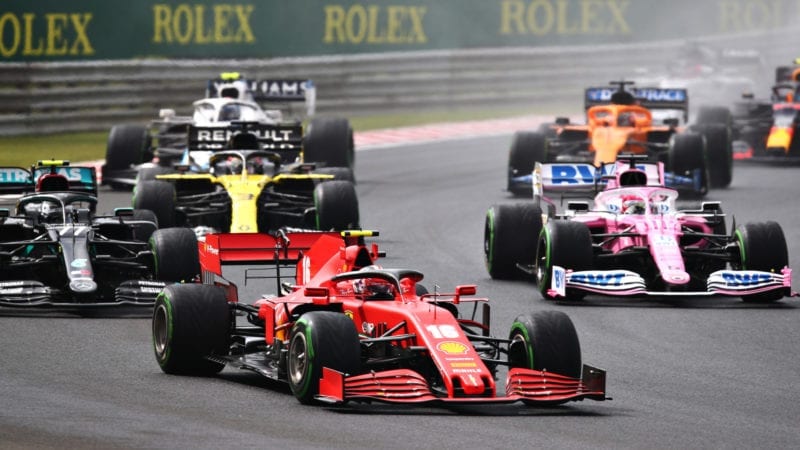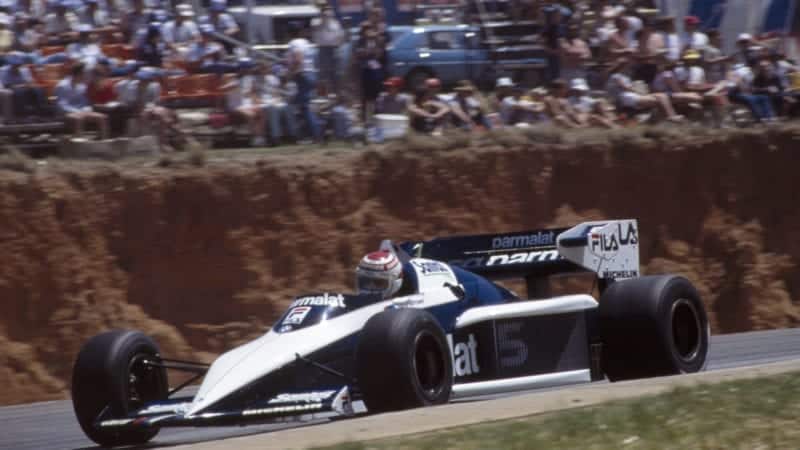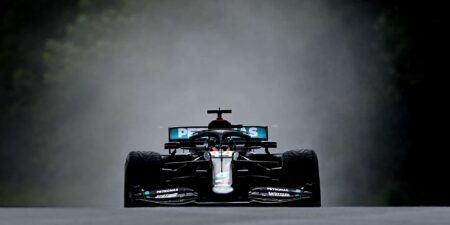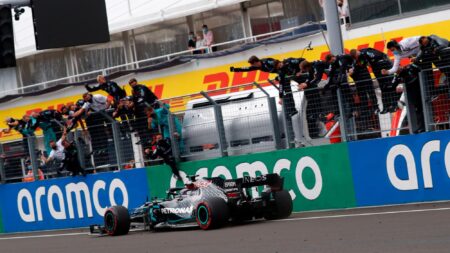Since then, in the intervening 21 years, it’s been done once, by McLaren’s Lewis Hamilton in 2008, when he pipped Felipe Massa by a point in that Brazil season finale no-one will ever forget, but Ferrari took the constructors’ championship.
In an ironic aside, the Piquets can boast a direct involvement in that, too. Had Nelson Jr not deliberately crashed in Singapore to bring out the Safety Car and facilitate a win for Renault team-mate Fernando Alonso, race leader Massa would not have needed to make a hurried pit stop, in which he left with his refuelling hose still attached and dropped from first to last. Had that race played out normally, Felipe would have been the 2008 world champion, not Lewis.
So much for the history, then. Where am I going with this?
Amid times of widespread change in F1 – budget caps, potential levelling of playing fields, etc – the sport should go the whole hog and give us a proper drivers’ championship. And the only way to do that is to rotate the drivers between teams during the season.
Rather than being employed by the teams, drivers qualify for the top echelon of the sport in the same way that tennis players or golfers do, via feeder series, on merit alone. They receive a basic FIA wage for competing at each grand prix, with healthy remuneration for points scored and megabucks for winning the championship. At year-end, the bottom four or five are relegated, to be replaced by the star men from the feeder series.
Can you think of another top sport in which you strive like hell to ‘make it’, and find it so skewed that 75-90 per cent of the competitors can’t compete?
While it’s great to have F1 back after such a long break, the excitement is tempered by, as things stand, just the one truly competitive car. If your name is anything other than Hamilton or Bottas, my cat’s got as much chance of winning the world championship.
Before I go further, I do think Lewis is a special driver: super-quick, instinctive, savvy racer, error-free, clean and fair. But is he on a higher plane than anyone else? I can’t tell you because I don’t know. All I know is that when you put such a driver in demonstrably the best car for seven successive 20-odd race seasons, it’s hardly a surprise that he looks set to usurp Michael Schumacher’s records.
Schumacher himself drove the best car, or one very close to it – with a subservient team-mate – for 11 of his F1 seasons, so it wasn’t a shock that he won 91 races. Impressive, yes, but hardly unbelievable.
Can you think of another top sport in which you strive like hell to ‘make it’, finally break into the big league, and find it so skewed that 75-90 per cent of the competitors can’t compete?
Imagine you’re a tennis player: you’ve done thousands of hours of practice, looked after yourself, made sacrifices and finally broken into the world’s top 100. You find yourself on the main tour, in the draw for grand slams, but when you get there you’ve got to play Djokovic, Nadal and Federer with a wooden racket. That’s pretty much the situation that 90 per cent of F1 drivers find themselves in.
The money’s another story. You can look at the ATP prize money list and see that Djokovic has $143m in career prize money, Federer $129m and Nadal $120m. And the nearest to them is Andy Murray with $64m. But to get to that level they have to turn up every week and beat everyone on level terms. They are genuine sporting giants.
Contrast that with F1, where the wealth of the leading drivers is salary-derived rather than results-driven and only one of the 10 teams is capable of winning. The top drivers sign multi-year contracts and are then effectively protected species. Until someone comes along and pricks their bubble. But the only man who can do that is the guy sat in the same car. One seat.
With Hamilton over the past seven years, nobody has burst that bubble. Nico Rosberg beat him in 2016 with the same car but a blown engine for Lewis in Malaysia had a lot to do with that. And the effort involved led Nico to hang up his lid rather than try to do it again. A bright lad, he no doubt fully understood how much robbing Lewis of the chance to redress the balance would get up his nose!
Are current champions overrated?
At Ferrari, Schumacher was paid multiple squillions to drive the best car for years. Having been around since the championship started Ferrari was aware of history showing that the best chance of making the best car but not winning the drivers’ championship comes when you have two winning drivers fighting each other in the same team. So Michael was better protected than Lewis. It would have been dynamite if a Hakkinen or Alonso had been dropped into the same car.
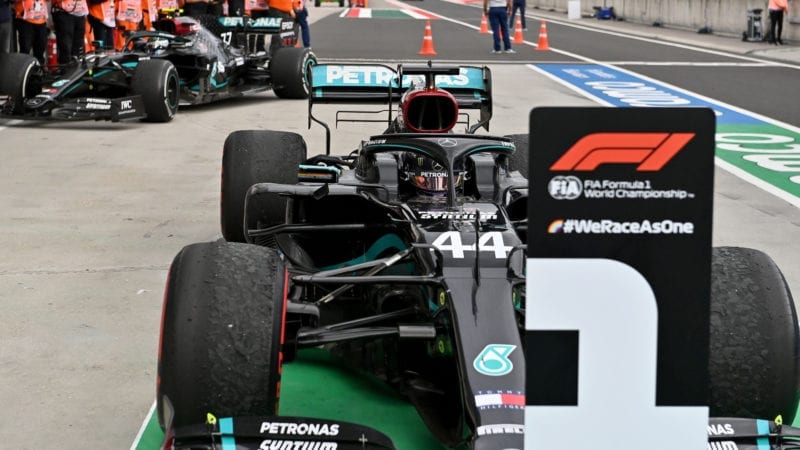
Hamilton and Bottas in parc fermé after dominating the Hungarian GP
JOE KLAMAR/AFP via Getty Images
The psychological effects of continued success are interesting. You can’t blame the casual F1 observer for thinking, over the past few years, that Hamilton and Sebastian Vettel were on a different level to the rest. But, even when you’re close to it and know that in reality all the guys out there are within a couple of tenths, over time you, too, start to believe that the multiple winners are super beings. And then something jolts you awake. Like Lance Stroll, a man who couldn’t clear Q1 for most of 2019, suddenly qualifying on the second row in the dry when Racing Point gives him a Mercedes.
I feel for Sergio Perez over the speculation that he could lose his Racing Point seat to Vettel. Yes, Seb’s a four-time world champion, a fine ambassador and a good guy, but how many others would have been in those Red Bulls? The Vettel bubble was pricked by Daniel Ricciardo in 2014 and Sebastian was highly fortunate that Ferrari had terminally fallen out with Alonso at the same time.
In a recent podcast with my journalist colleague Tom Clarkson, it was interesting to hear Nick Heidfeld talk of his time with BMW-Sauber, where Vettel was test driver.
“I under-rated him back then,” Nick said, “never thought he would be a multiple champion. I’m not basing that on the one race I did with him (Indy 2007) but all the tests. He did a lot of Friday sessions and he did okay but the fact that BMW didn’t put him in the car also shows they weren’t 100 per cent convinced. Everyone liked him and I think the mindset was to try to get him in the car, but the results weren’t quite good enough.”
The pole and wet Monza win in the Toro Rosso in ’08 changed the perception of course, and then came the Newey supercars early in the F1 career. Then he encountered first Ricciardo, then Charles Leclerc, when the late Sergio Marchionne disregarded history lessons, pitched “laggard” Kimi Räikkönen and lobbed in Charles alongside Seb. Light the blue touch paper and stand back… Oh, look what’s happened! But wasn’t it great? Drivers shouldn’t be protected in F1’s top teams.
So now there are question marks over Seb and he’s no longer the blue-eyed boy. Checo, meanwhile, has never had a winning car. His record is actually really decent. In his rookie season at Sauber, Kamui Kobayashi got the better of him but Perez turned the tables the following season and earned himself a McLaren seat.
Sadly, it was the wrong time to go to Woking and Perez did not get the winning car he expected. Jenson Button bested him, but not by much, and has always rated Sergio. It’s worth pointing out at this point that in three seasons alongside Hamilton at McLaren, Jenson outpointed Lewis 672-657 and scored just two fewer victories than Hamilton’s 10.
